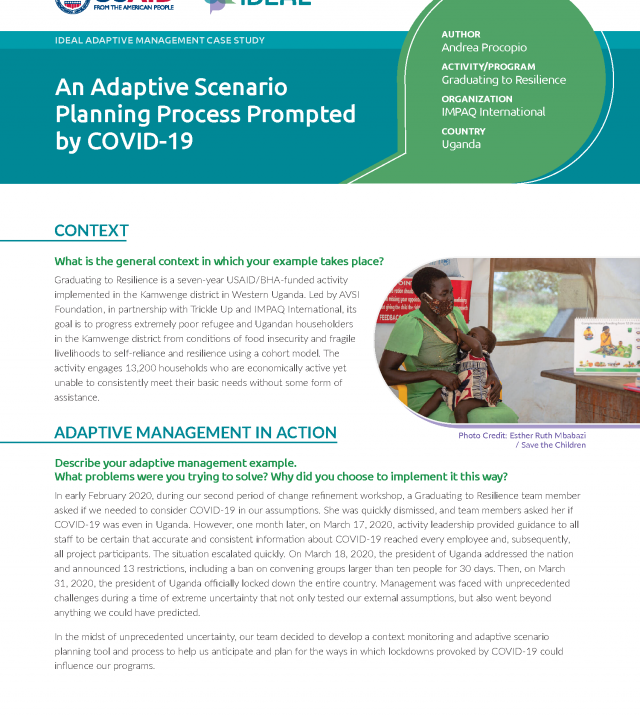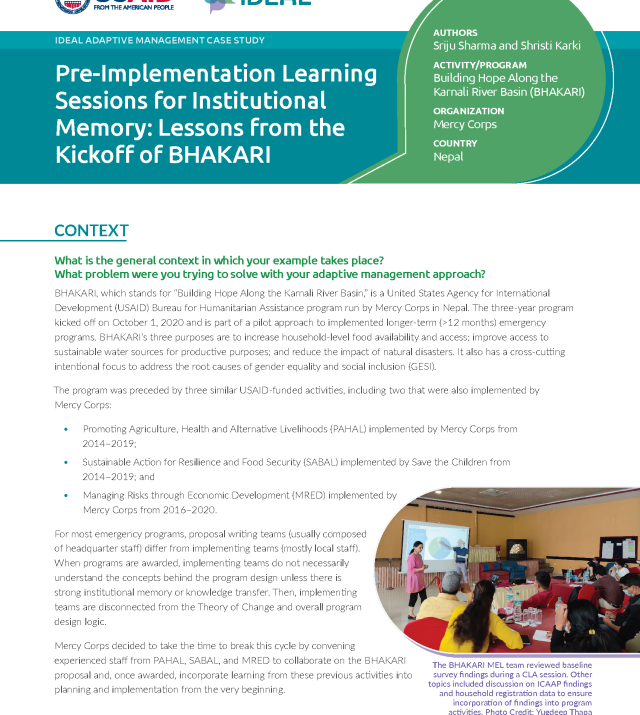
Adaptive Management Case Studies

Overview
IDEAL’s Adaptive Management case studies provide practical examples of how USAID BHA-funded activities have implemented adaptive management approaches to address changes in their operating environment, reflect on evolving priorities, and apply emerging learning. Each case outlines the challenges that prompted the use of an adaptive management approach, the context in which the approach was implemented, the impact it had on the activity and objectives, and the enabling conditions that facilitated its success. They also provide relevant tools and resources that other activities can use and adapt when testing similar approaches. The examples featured include adaptive management approaches for building on institutional knowledge; sequencing, layering, and integrating programming; verifying quality improvements; and engaging communities around scenario planning and context monitoring.
- Read Pre-Implementation Learning Sessions for Institutional Memory: Lessons from the Kickoff of BHAKARI to learn more about BHAKARI’s use of institutional knowledge to understand what worked and did not work in previous activities and avoid facing similar issues.
- Read BHAKARI’s Approach to Sequencing, Layering, and Integration to learn more about BHAKARI's application of the Integrated Community Assessment and Action Planning (ICAAP) method to identify the most vulnerable communities and households for targeting.
- Read Using a Quality Improvement Verification Checklist to Build a Learning Culture to learn about Apolou's use of a Quality Improvement Verification Checklist (QIVC) to build a learning culture.
- Read An Adaptive Scenario Planning Process Prompted by COVID-19 to learn more about the Graduating to Resilience Activity’s context monitoring and adaptive scenario planning tool and how it helped the activity anticipate and plan for the ways in which lockdowns provoked by COVID-19 could influence their programs.
- Read Learning and Adapting from Community Feedback to learn more about how the Graduating to Resilience Activity has used standing committees to inform its context monitoring and scenario planning efforts.
- Read Community-based Scenario Planning for Disasters and Conflict to learn more about how the Accelerating Recovery and Resilience in South Sudan (ACCESS) activity has supported community members in creating committees focused on various risk areas to mitigate, and respond to, challenges associated with disasters, conflict, and other pressures.

